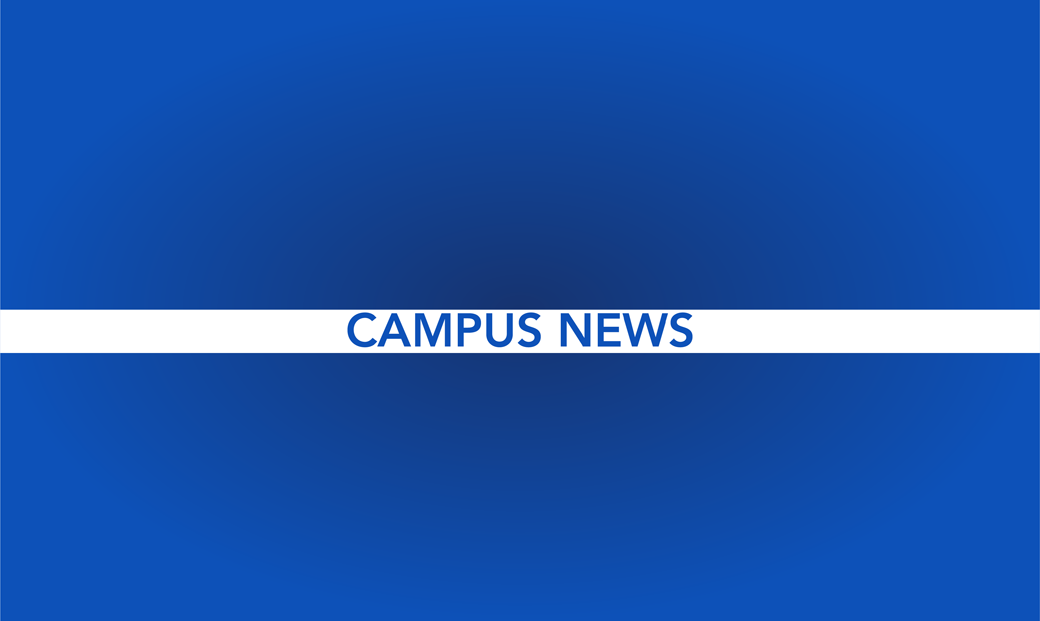
Gender inclusive housing, the Center for Diversity & Community important outlets for LGBTQ+ students
In its second year of implementation, gender inclusive housing along with efforts by the Center for Diversity & Community has made a positive impact for
LGBTQ+ students.
About 30 students opted for gender inclusive housing this fall, said Housing Director John Geske.
Gender inclusive housing is available in North Complex, McFadden Hall and Coyote Village, and is an option for students who identify as non-binary or simply want to be a part of an accepting
living community.
Geske said gender inclusive housing is “key” to the mission of Housing and the overall university to provide equal access to healthy eduction, growth and social opportunities for
all students.
“For us, it’s extremely important,” he said.
Jordy Bachmann, a fifth-year student and secretary for Spectrum: Gender and Sexuality Alliance, said he would’ve taken advantage of gender inclusive housing in his earlier years of school if the option
were available.
“It creates a safe space for people,” he said. “I do have a few friends who were in the gender inclusive housing and they all thought it was a really great experience. They loved it… There are allies as well so you know it’s a safe space.”
Bachmann has lived in McFadden Hall for two years and in Coyote Village for the three years before that. This is the first year he’s had his preferred name on his door.
“It always feels awkward when I see my legal name anywhere, so to see the name I go by for pretty much everyone on campus on my door, it meant a lot,” he said.
Bachmann always clarifies that he prefers to be called Jordy on the first day of class with his professors. He said he normally doesn’t tell his professors his preferred pronoun unless he gets to know them a little better.
When Bachmann does tell people his preferred pronoun, he doesn’t feel unsafe, just “a touch
uncomfortable.”
“I feel like most, if not all, the students are at least tolerant if not completely accepting,” he said. “I personally have never experienced harassment or anything
on campus.”
Lauren Hosty, a graduate student studying adult in higher eduction administration, got their undergraduate degree in sociology at the Southern Illinois University Carbondale. Hosty came to USD by chance, after going to an interview conference and looking for any school that had gender inclusive housing or opportunities for them to work with LGBTQ+ students, in addition to their
graduate program.
“USD just kind of worked out that way,” Hosty said.
Generally speaking, Hosty said people are very accepting
on campus.
When the Orlando shooting happened over the summer, Hosty said they were on campus, and did experience some nervousness about the upcoming school year.
“I felt a little nervous about being so openly trans in this coming year,” Hosty said. “There was a little bit of a nervousness about living in such a conservative state and being so unapologetic, but other than the few weeks there that I was nervous, I honestly don’t think it’s had any real change on my openness about it. There’s too much good I can do in being open about it to make me stop.”
Hosty is an intern at the CDC and also a graduate assistant for
University Housing.*
Though Hosty isn’t very involved in Spectrum, they work with the group and other LGBTQ+ students through their CDC internship. Hosty said most of what they do involves LGBTQ+ programming and giving feedback as it relates to LGBTQ+
related issues.
Hosty also works closely with the LGBTQ+ students living in gender inclusive housing, which they said has been a positive experience. They said if any student is experiencing any LGBTQ+ related issues, they’re welcome to come talk.
As someone heavily involved in Spectrum and the CDC, Bachmann said the center is a great space with “very
accepting” faculty.
“It feels like home,” Bachmann said, adding that most of his friends were made at the center.
Bachmann also has a passion for USD’s commitment to
inclusive excellence.
“I love that that’s a thing here,” he said. “Because it’s a great motto and it tells you a lot about campus.”
Though Bachmann thinks the university is doing well in terms of acceptance of LGBTQ+ students, he said it can always do better.
Two areas in particular that Bachmann would like to see improved are safe zone training and more on-campus gender neutral bathrooms with clearer signage.
Bachmann said he would like to see the safe zone training extend beyond a “simple questionnaire,” and would like to see more in-person training, especially for faculty and Resident Assistants.
Hosty agrees, and believes all staff and faculty should complete in-depth safe zone training.
Other improvements Hosty would like to see include creating an ‘other’ option for gender and leaving space for a preferred name on university forms. Both of these adjustments are in the works in the Center for Diversity & Community, they added.
“We still live in the middle of nowhere, and we still live in the only blue county in a red state, so there’s a ways to go,” they said, referring to acceptance of LGBTQ+ students overall
at USD.
Hosty said people are often unknowingly offensive or hurtful if they’re not knowledgable on LGBTQ+ issues, but for the most part, they believe people are willing to learn.
“All of the people that I’ve been in contact with have done a very good effort in trying to be better…” they said. “We’re getting somewhere.”
Hosty said they believe the CDC will play a big role in that the more it gets involved with all students across campus.
“It’ll only get better,” they said.
* Hosty noted they’re not speaking on behalf of University Housing or the CDC.

